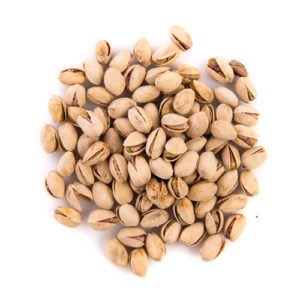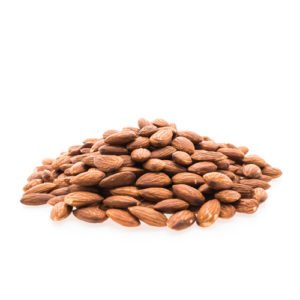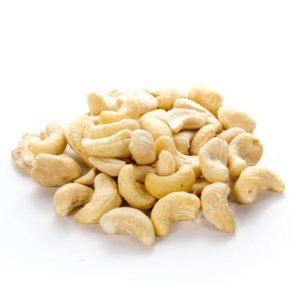Walnuts provide healthy fats, fiber, vitamins and minerals — and that’s just the beginning of how they may support your health. In fact, there’s so much interest in this one nut that for the past 50 years, scientists and industry experts have gathered annually at the University of California, Davis, for a walnut conference discussing the latest walnut health research.
Walnuts are an excellent source of antioxidants that can help fight oxidative damage in your body, including damage due to “bad” LDL cholesterol, which promotes atherosclerosis.Walnuts are significantly higher in omega-3 fat than any other nut, providing 2.5 grams per 1-ounce (28-gram) serving .Omega-3 fat from plants, including walnuts, is called alpha-linolenic acid (ALA). It’s an essential fat, meaning you have to get it from your diet.According to the Institute of Medicine, adequate intake of ALA is 1.6 and 1.1. grams per day for men and women respectively. A single serving of walnuts meets that guideline.Observational studies have shown that each gram of ALA you eat per day lowers your risk of dying from heart disease by 10%. Walnuts are a good source of the plant form of omega-3 fat, which may help reduce heart disease risk. Inflammation is at the root of many diseases, including heart disease, type 2 diabetes, Alzheimer’s disease and cancer, and can be caused by oxidative stress. The polyphenols in walnuts can help fight this oxidative stress and inflammation. A subgroup of polyphenols called ellagitannins may be especially involved. Beneficial bacteria in your gut convert ellagitannins to compounds called urolithins, which have been found to protect against inflammation.ALA omega-3 fat, magnesium and the amino acid arginine in walnuts may also decrease inflammation. Several plant compounds and nutrients in walnuts may help decrease inflammation, which is a key culprit in many chronic diseases. Studies suggest that if your gut is rich in health-promoting bacteria and other microbes (your gut microbiota), you’re more likely to have a healthy gut and good overall health.
An unhealthy composition of your microbiota can contribute to inflammation and disease in your gut and elsewhere in your body, increasing your risk of obesity, heart disease and cancer. What you eat can significantly influence the makeup of your microbiota. Eating walnuts may be one way to support the health of your microbiota and your gut. When 194 healthy adults ate 1.5 ounces (43 grams) of walnuts every day for eight weeks, they had an increase in beneficial bacteria, compared to a period of not eating walnuts This included an increase in bacteria that produce butyrate, a fat that nourishes your gut and promotes gut health Eating walnuts not only nourishes you but also the beneficial bacteria that live in your gut. This promotes the health of your gut and may help reduce disease risk.
Test-tube, animal and human observational studies suggest that eating walnuts may reduce your risk of certain cancers, including breast, prostate and colorectal cancers. As noted earlier, walnuts are rich in the polyphenol ellagitannins. Certain gut microbes can convert these to compounds called urolithins. Urolithins can have anti-inflammatory properties in your gut, which may be one way that eating walnuts helps protect against colorectal cancer. Urolithins’ anti-inflammatory actions could also help protect against other cancers (5Trusted Source). What’s more, urolithins have hormone-like properties that enable them to block hormone receptors in your body. This may help reduce your risk of hormone-related cancers, specifically breast and prostate cancers. More human studies are needed to confirm the effects of eating walnuts on decreasing the risk of these and other cancers, as well as to clarify all the ways or mechanisms by which they may help.
The polyphenols in walnuts may reduce your risk of certain cancers, including breast, prostate and colorectal cancers. However, more human studies are needed to confirm this. Walnuts are calorie dense, but studies suggest that the energy absorbed from them is 21% lower than would be expected based on their nutrients. What’s more, eating walnuts may even help control your appetite.Though they’re calorie-dense, you may not absorb all of the calories in walnuts. Additionally, they may even help you control appetite and hunger. Observational studies suggest that one reason walnuts are linked to a lower risk of type 2 diabetes is that they help control weight. Excess weight increases your risk of high blood sugar and diabetes. Yet, eating walnuts may help control blood sugar by mechanisms beyond their influence on weight control. In a controlled study in 100 people with type 2 diabetes, consuming 1 tablespoon of cold-pressed walnut oil a day for 3 months, while continuing their usual diabetes medication and balanced diet, resulted in an 8% decrease in fasting blood sugar (22Trusted Source).
Additionally, the walnut oil users had about an 8% decrease in hemoglobin A1C (3-month average blood sugar). The control group showed no improvement in A1C or fasting blood sugar. Neither group had a change in their weight. Eating walnuts may help control type 2 diabetes and reduce your risk of the disease, as the nut may help control your weight. Walnuts might have more direct effects on blood sugar control as well. High blood pressure is a major risk factor for heart disease and stroke.As you age, good physical functioning is essential for maintaining your mobility and independence. One thing that may help maintain your physical abilities is healthy eating habits. In an observational study over 18 years in more than 50,000 older women, scientists found that those with the healthiest diets had a 13% lower risk of physical impairment. Walnuts were among the foods that made the strongest contribution to a healthy diet.
Though high in calories, walnuts are packed with essential vitamins, minerals, fiber, fats and plant compounds that may help support good physical functioning as you age. A healthy diet that includes walnuts may help preserve physical function, such as walking and self-care abilities as you age. It may be just a coincidence that the shell of a walnut looks like a tiny brain, but research suggests that this nut may indeed be good for your mind.Animal and test-tube studies found that the nutrients in walnuts, including polyunsaturated fat, polyphenols and vitamin E, may help reduce oxidative damage and inflammation in your brain. Observational studies in older adults have linked eating walnuts to better brain function, including faster processing speed, more mental flexibility and better memory.
Though these results are encouraging, more studies testing the effects of walnuts on brain function in humans are needed to draw firm conclusions.Walnuts contain nutrients that may help protect your brain from damaging inflammation and support good brain function as you age.Typical Western diets — high in processed foods, sugar and refined grains — have been linked to reduced sperm function.Eating walnuts may help support sperm health and male fertility.When 117 healthy young men included 2.5 ounces (75 grams) of walnuts daily in their Western-style diet for three months, they had improved sperm shape, vitality and mobility, compared to men not eating nuts.Animal research suggests that eating walnuts may help protect sperm by reducing oxidative damage in their membranes.Further studies are needed to confirm these benefits, but if you’re a man concerned about fertility, eating walnuts is a simple thing to try.
Eating walnuts regularly may help counteract potential harmful effects of less-than-ideal eating habits on sperm health. Elevated levels of “bad” LDL cholesterol and triglycerides have long been linked to an increased heart disease risk.Regularly eating walnuts has been consistently shown to decrease cholesterol levels.For example, in a recent study in 194 healthy adults, eating 1.5 ounces (43 grams) of walnuts daily for eight weeks produced a 5% decrease in total cholesterol, 5% decrease in LDL cholesterol and 5% decrease in triglycerides, compared to not eating walnuts.The walnut eaters also had nearly a 6% decrease in apolipoprotein-B, which is an indicator of how many LDL particles are in your blood. When elevated, apolipoprotein-B is a major risk factor for heart disease walnuts may help lower harmful cholesterol and triglyceride levels, which contribute to heart disease risk.








Reviews
There are no reviews yet.